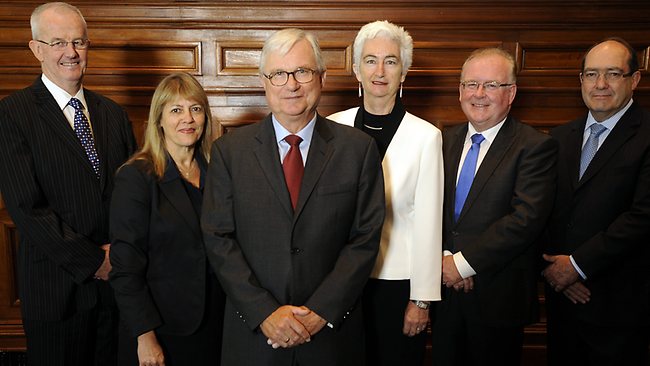Child Abuse Inquiry Says It's Ready to Use Powers to Compel Production of Evidence
By Rick Morton
THE head of the royal commission into child sexual abuse says the inquiry won't hesitate to exercise its powers to compel people and organisations to give evidence before it. Justice Peter McClellan said the task before the commission, set up to investigate institutional responses to child sexual abuse, was complex, large and would take time. Julia Gillard has given the six royal commissioners until December 2015 to complete their inquiry, with an interim report expected by June 2014. Justice McClellan, speaking publicly for the first time since being appointed to head the royal commission, said there had been considerable public discussion about the powers of the commission to inquire into matters that were the subject of confidentiality agreements. Some child abuse victims signed such agreements when settling claims against institutions. “We wish to emphasise that the commission has powers to compel the production of evidence and we will not hesitate to exercise those powers,” Justice McClellan told reporters in Sydney. “We will of course be mindful of the potential sensitivity which may require constraints on the publication of details it obtains by this means. “The commission expects that all institutions that may have entered into confidential agreements will cooperate with the commission in relation to the disclosure of those matters.” Justice McClellan said the “full extent” of the task before the commission was not yet known. It was not yet possible to identify when public hearings would begin and to the outside world it would appear for months as if little progress had been made. The commission's highest immediate priority was appointing trained staff to run a hotline for those who may wish to give evidence. The commission is also establishing a research arm, hiring administrative staff, legal counsel and support staff. Justice McClellan said the commission would make not recommendations on compensation for victims. “The commission is not charged with determining whether any person may be entitled to compensation for any injury which they may have suffered,” he said. The six commissioners would split up to take evidence, covering “the broadest geographical reach for our inquiries”, “This includes institutions which may have provided assistance to persons of indigenous communities. We are also conscious of the possibility there may be persons overseas with which the commission would like to speak. We will make arrangements as much as possible for this to occur”. There was no word on a budget for the commission, which The Australian reported on Monday would be at least $100 million. Hearings would take place in private where necessary and names of those giving evidence may be changed to protect their identities and families. But Justice McClellan added: “Where possible, the commission will take place in public. “Public knowledge is a fundamental objective of the commission.”
|
.
Any original material on these pages is copyright © BishopAccountability.org 2004. Reproduce freely with attribution.
